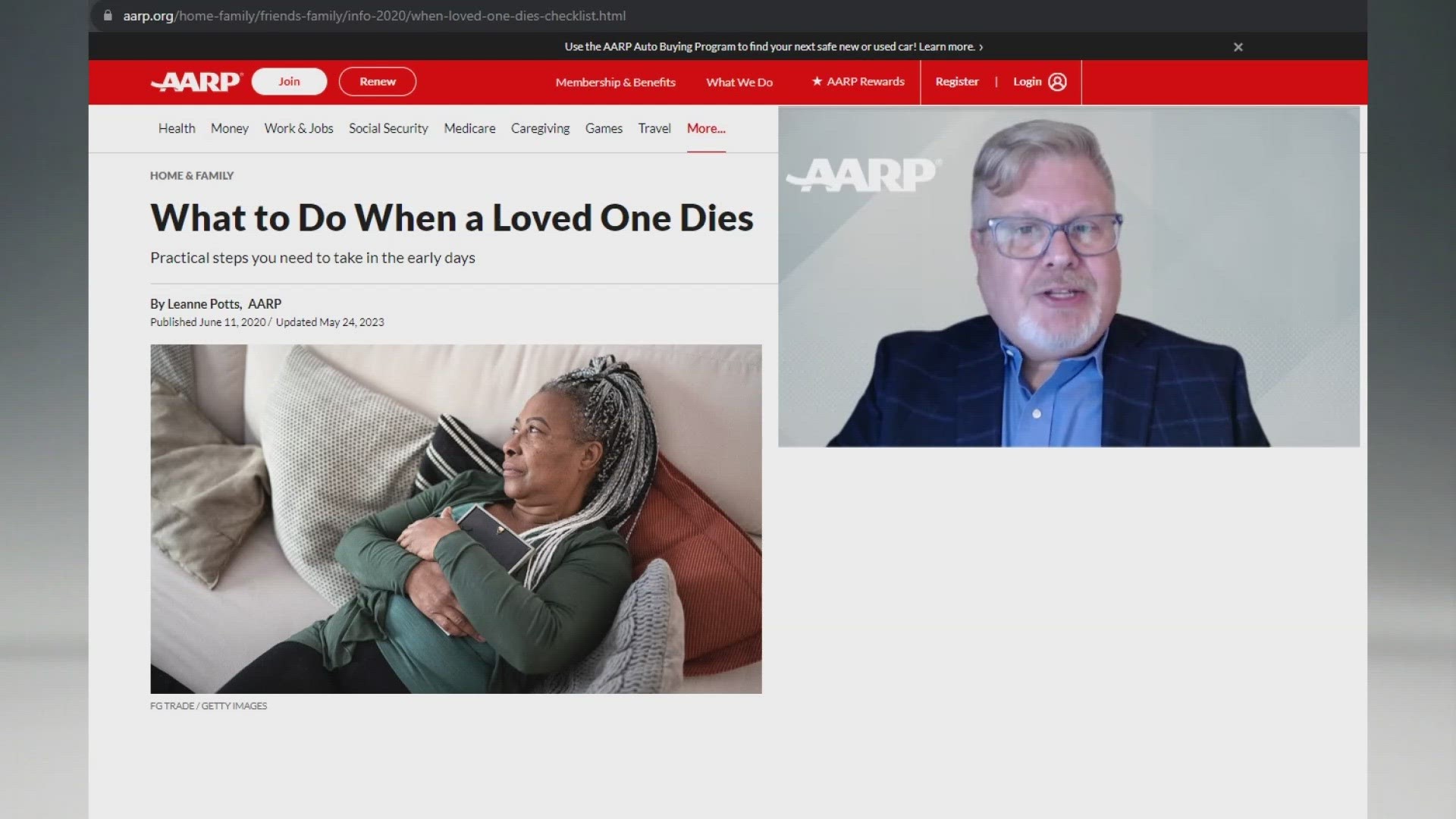GREENSBORO, N.C. — You may have had time to say goodbye and take care of their last wishes, but even with that, after your loved one dies, you're left with grief and a long process with a lot of paperwork.
"The process of closing out someone's life can take over a year to complete," said Mark Hensley, NC AARP, Associate Director of Community Outreach.
AARP has practical steps you need to take in the early days after a loved one has passed away. Their article breaks it up into what to do immediately, what to do in the first week, what to do in the second week, and so on.
LEGAL PRONOUNCEMENT OF DEATH
In the AARP article, one of the first things you need to do is make sure you have a legal pronouncement of death. Without it, you can't get a death certificate. Without a death certificate, you can't plan a funeral or get a will filed.
If your loved one dies in a hospital, nursing home, or with a doctor present--- they handle it. If your loved one dies at home, the recommendation is to call 911 and have your loved one transported to an ER.
HOW MANY COPIES OF THE DEATH CERTIFICATE DO YOU NEED?
"You want to get certified copies of the death certificate. There's a cost, it's recommended you get up to 10 copies. Why? You have to visit lawyers, banks, utility companies even email companies require you to produce a certificate of death before they will close an email account," said Hensley.
WHAT ABOUT THE WILL?
Some lawyers keep the wills they draw up and will file them for you at the time of death. But most commonly, a family member or the will executor has to physically find the will and take it to the courthouse so it can go through the probate process.
"You must obtain the will and you take it to the county courthouse for probate and there are fees associated with this. Once the terms of the will are concluded then you have to close the estate and there is a fee with that too for the probate court to do that process," said Hensley.
FORWARD THE MAIL, PAY THE BILLS, CONTACT CREDITORS AND THE CREDIT BUREAUS
You'll want to forward the mail from the empty house to your house to the executor's house to make sure the bills are being paid.
"You don't accumulate charges against the estate," said Hensley.
He suggests you send a copy of the death certificate to any of the credit reporting bureaus, Experian, Equifax, or Trans Union. This will freeze their credit so that scammers can't take advantage of the estate. You want to do the same with the credit cards and other bills that need to be paid.
"You don't want someone to steal the identity of your loved one and it's going to be made very public that they passed away," said Hensley.


